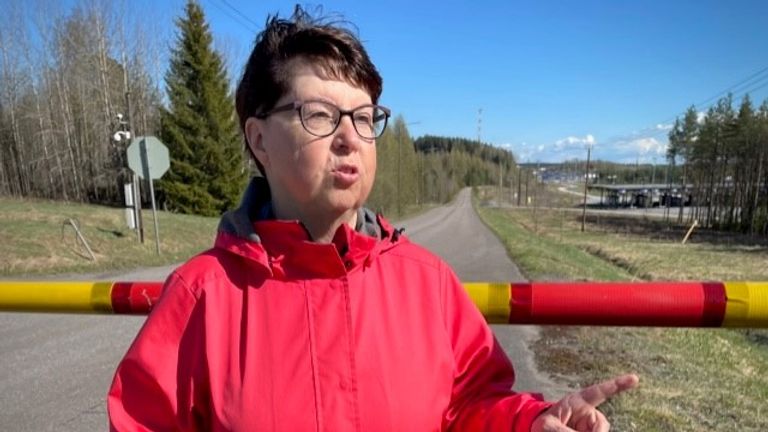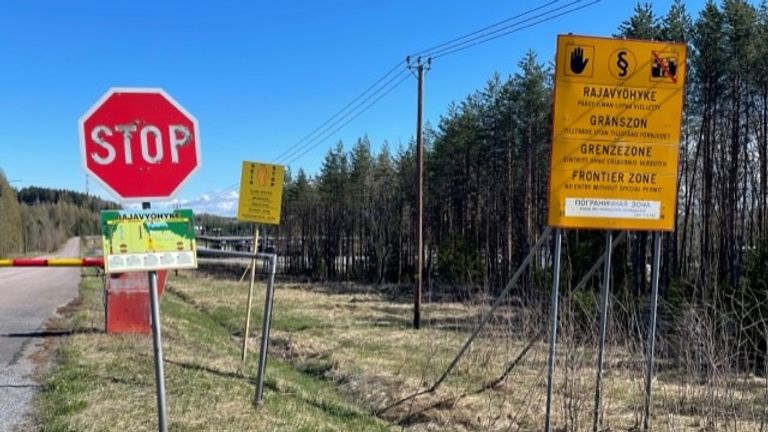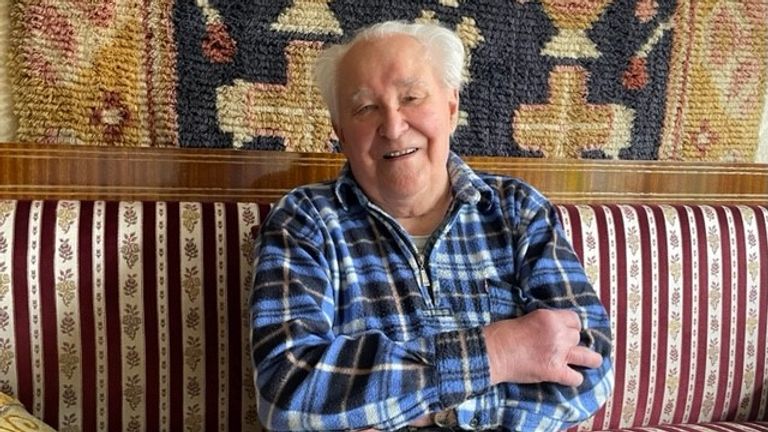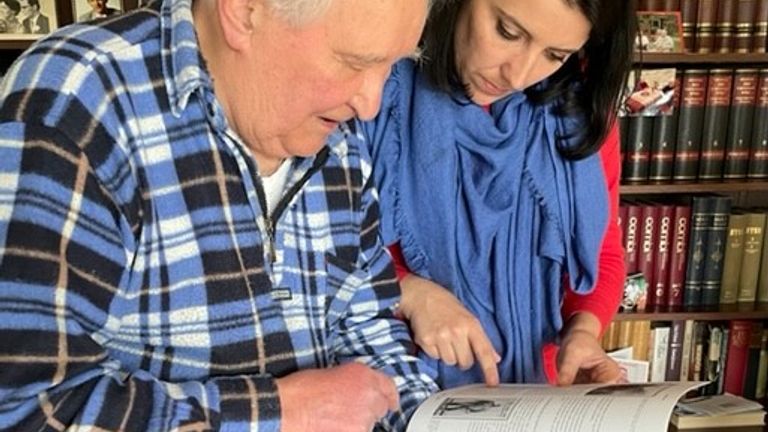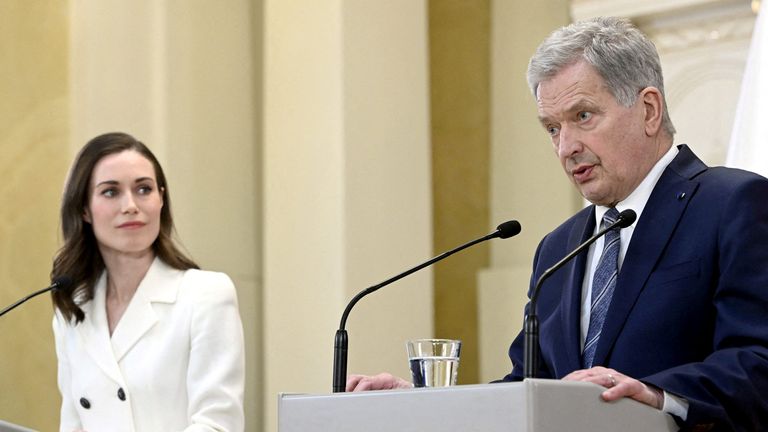[ad_1]
In the towns and villages around Lappeenranta on Finland’s eastern border, Finns live nearer to Russia’s St Petersburg than their own capital Helsinki.
Geographically close, they’ve rarely felt more politically distant from their neighbour.
“Russia has been to this area both a blessing and a curse. Of course, we depend very much on the trade with Russia. But on the other hand, there is this part of Russia that is very, very bad,” tour guide Riitta Mustonen tells me as we drive towards Russian territory.
Born and bred by the border, for years Riitta backed Finland‘s military neutrality.
Then President Putin invaded Ukraine and suddenly being in NATO seemed like a much safer bet.
“We need more power,” she explains. “Russia is a country that respects only power, nothing else. The power needs a counter-power. Now we will have it with NATO.”
Sweden indicates it’s keen to join NATO – read latest Ukraine war updates
Huge yellow signs warn us that we are reaching the frontier.
Local border guards stop us to check we aren’t planning to illegally enter the restricted zone.
As we stand at the edge of Finland’s territory looking into Russia, the peaceful country scene feels a million miles from the aggressive foreign policy President Putin is doggedly following.
The Kremlin has previously warned Finland it could retaliate if NATO expands but Riita isn’t concerned.
Along with more than 70% of Finns she’s backing being part of the alliance.
It seems Finland’s leaders agree, as they have confirmed their intention to join NATO.
Making the announcement, President Sauli Niinisto said: “Today, we have a historic day. Finland will maximise its security.”
I asked the prime minister, Sanna Marin, if she was worried about retaliation from Russia.
“Everything has changed when Russia attacked Ukraine and I personally think that we cannot trust anymore that there will be a peaceful future next to Russia… that’s why we are making the decision to join NATO,” she replied.
Ninety-one-year-old Seppo Koivupuro remembers the last battle with the then Soviet Union.
As a child, he watched bombs dropping on Finland in the Winter War which started in 1939.
“I’m not worried. Relations are now very bad with Putin’s Russia, they’re not so bad that they may attack here. I don’t think so. I’m not afraid but I’m sad,” he says.
As well as potential disruption to energy supplies or cyber attacks, possible Russian retribution could trigger further economic pain.
COVID and the war in Ukraine have already hit the frontier areas hard.
Russian tourism has dwindled and now traffic trickles through checkpoints.
Maria Taina-Parviainen is one of around 80,000 Russians living in Finland. She’s furious with President Putin, saying he’s a “terrorist” for invading Ukraine.
“He’s flushing Russia in the toilet… he hates Russia, he hates all the nations. He’s killing Russia. He’s not a patriot really,” she tells me.
On Saturday, Vladimir Putin told Finland’s president that the country was not under threat, and it would be a mistake to end its policy of military neutrality.
But that reassurance is hard to trust when it’s the Russian leader’s own aggressive actions which have pushed his neighbours towards NATO.
Parliament still needs to approve the application and becoming a fully-fledged member of the club will take time, but Finland has changed the course of its own future, and the future of security in Europe.
[ad_2]


